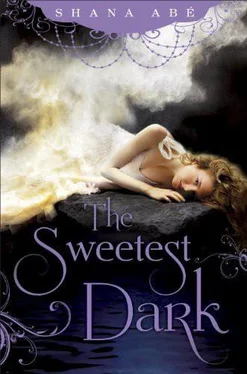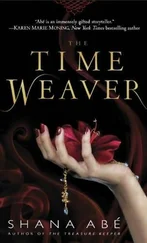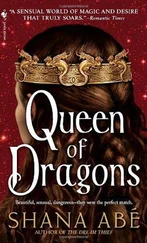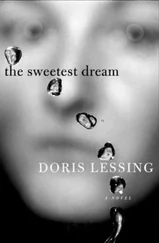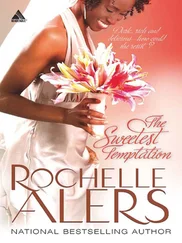I didn’t care. I could not recall a time in my life when I had slept in a room of my own; the cell at Moor Gate did not count. That I didn’t have to scrap for a better pillow or drawer space or a clean chamber pot seemed an indescribable luxury. Princesses, I thought, running my hand over a quilt, lived sovereign like this.
The solitary window of my room once was probably little more than an arrow slit but at some point had been widened and glazed. The glass shone in a thousand diamond-bitty pieces, many of them splintered but all still in place. I’d shoved at the rusted hinges to open it, peering out at the view, and that was when I realized that the castle was on an island.
We had crossed so many bridges in the carriage, I’d stopped counting them. Plus, I’d been fiercely focused on blocking Jesse’s music from my mind. But from my window I could see the bridge that connected us to the mainland, a slinky wooden track braced with pillars that sank into the waves, foam bursting silver against them. It looked to be nearly a mile long.
A mile of sea from here to there. I don’t know why that thought seemed so pleasant.
I was a princess in a very dark tower. I banged my shin twice against the bedpost, trying to maneuver to the bureau, and my hip once against the bureau, attempting to grope my way back to the bed. There was an armoire, too, but I didn’t feel up to wrangling with anything pointy like hangers or hooks.
I’d found two candles but no matches, and knew better than to look for a light switch.
“Castle’s not wired for the electrical,” Almeda had informed me as we climbed the tower stairs. She was heavyset and huffing for breath by the second landing, tackling each stair with a substantial stamp of her foot. By her apron and cap, I’d guessed she was the head maid or chatelaine, but she’d not volunteered the information, and I had not asked.
“We make do with good old-fashioned means here,” she’d panted. “Coal and the like. Fine, traditional ways. You’ll get a filled lamp for your room and two candles per month. Don’t waste ‘em, and don’t go asking for more than that, because you won’t get more, eh?”
Eh, indeed.
It happened that the lamp was missing—perhaps one of the less frugal girls had pinched it—and the candles, without matches, were useless. But after I had unpacked my case by touch and found my way into my nightgown and settled into the bed, the moon had risen just enough to pearl the window, and the diamond panes began a slow, dazzling show of light that made the darkness no longer matter.
I fell asleep with my stomach growling and the sea beyond my tower striking the land, striking, striking, a giant’s hand against a huge hollow drum.
But for a single passing dream of a caress to my forehead—a whisper of sensation, safe and gentle and then gone—I slept deep.
Here is the list of weapons I counted in the headmistress’s serene golden chamber:
The candles from the chandelier.
The poker and its stand by the fireplace.
The pink-daisied porcelain lamps, which had been unlit, on the secrétaire and side cabinet and reading table.
Every single oil painting, remarkably flammable.
The curtains.
The crystal vases.
The bronze-framed mirror.
The glass face of the clock.
The inkwell.
And, of course, the letter opener on her desk, made of hard, sharp bone.
Hattie Boyd once held a letter opener she’d snatched from a nurse’s hand to the jugular vein of Mrs. Buckler, the most vicious matron in Moor Gate. She held it there until she was promised one of the beef-and-potato pasties being served to the staff for supper. It cost her a blackened eye and two entire months in the isolation cell in the basement.
A few days before they managed to kill her for good, Hattie confided to me that that pasty was most delicious thing she’d ever tasted.
My eyes opened the next morning to a prism of sunlight stretched across my face and down my pillow. I groaned and rolled away from it, smelling feathers and brine. And … something fruity. Oranges?
I sat up, caught in that hazy state of not-yet-ready-to-be-awake, but the sun was bright, and about a second later there was a tapping on my door, which creaked open to reveal a housemaid.
“Good morning, miss. I’m Gladys. I’ve brought your fresh water.”
And so she had, carrying a filled pitcher up what had to be at least three flights of stairs. She moved to the bureau and set it there by the basin, then turned to me, still bundled in my quilt.
I swiped a mess of hair from my lashes and smiled at her tentatively. No one had ever brought me an entire pitcher of water before.
She was older than I, about twenty I would guess, with a skinny, angular frame and an apron so severely starched it looked like the edges could slice cheese. She did not smile back.
“Food’s not allowed in the students’ rooms, miss.” Gladys aimed her gaze pointedly at something by my side.
I looked down. There was an orange—a real one, fat and colorful—nestled right up against my pillow.
It had not been there last night. It had not. I would have felt it, smelled it. Certainly it hadn’t come with me from Blisshaven. I’d emptied my case down to the stitches.
Yet in an act of inexplicable sorcery, the orange was here now.
I remembered abruptly my dream, that touch to my face, how it had seemed so pleasurable and so real … like a gift.
“I—” I glanced up again at the maid; there was no mistaking now the rancor behind her eyes. Here was someone who was not especially pleased to consider me her peer. “I must have unpacked it last night and forgotten about it,” I lied. “So sorry. It won’t happen again.”
She returned to the door. “Breakfast begins in a half hour. I’m to show you the way, so I’ll be back before then.”
“Right. Thank you.”
The door clicked shut without a response.
I sat there for a moment, then picked up the orange, rolling it between my palms. Never once had any form of my madness produced food from empty air; someone had given me this. Last night. As I slept. And even though I hadn’t dreamed of music, there was no question in my mind about who it had been.
The tower door had no lock, no bolt. If Jesse worked for the school, as I suspected, he probably knew the castle like the back of his hand. But why would he risk such a thing? I could only imagine what Mrs. Westcliffe would do were she to come across her coachman sneaking into pupils’ rooms.
My room, rather. I’d likely set an Iverson record for Most Hastily Arranged Expulsion.
If it had been Jesse. If my mind hadn’t snapped, and I hadn’t carried the orange with me from London after all. In the clear light of day, it was difficult to envision even the mysterious Jesse venturing all the way up here just to leave me fruit.
An odd bit of folklore rose to the surface of my thoughts, something I’d read years ago in a battered, dusty book I discovered tucked in a cupboard at the Home. I’d always read every book I could find, and this one was about monsters, so old the pages had crumbled against my fingers:
Do not Eat the Food of the Fay. Do not Drink their Wine. You give Yourself to Them with every Sip, every Swallow. They shall Darken your Blood until you Desire only Dark. Only what Pleasures They may Bestow.
I shivered in the morning sunlight. I brought the orange to my lips in a deliberate hard kiss, meant to hurt. The rind hinted of bitter but the scent was still sweet.
“What am I to make of you?” I muttered into it. “Are you Dark?”
I will be delicious, was all the orange seemed to reply.
Читать дальше
